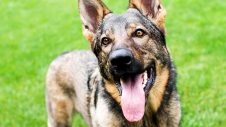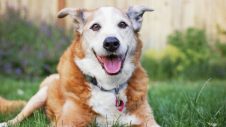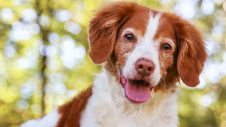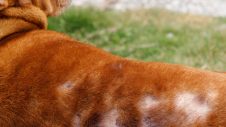What is Osteochondrosis?
Osteochondrosis is a condition that affects growing cartilage. The condition primarily affects young dogs going through rapid growth periods. Bone growth begins with the formation of cartilage, which then ‘ossifies’ or converts to bone. In osteochondrosis, this conversion process is abnormal, which leads to increased cartilage thickness where the bones join. The irregularly thickened cartilage suffers from poor blood supply and becomes softer and more susceptible to the effects of weight bearing impact. This leads to tissue formation, which sometimes progresses to the formation of cartilage flaps. Joint fluid then reaches the deeper layers of cartilage and bone, which creates inflammation. This inflammation causes pain and can lead to arthritis.
There are three specific types of osteochondrosis. The cause of these conditions is still not fully understood, but genes have been thought to play a part.
Osteochondritis Dessicans (OCD) – occurs in the shoulder, elbow, hock, and knee
Ununited Anconeal Process (UAP) – occurs in the elbow
Fragmented Coronoid Process (FMCP) – occurs in the elbow
Diagnosis
X-rays of the shoulders and elbows are the main tool used to diagnose the condition. The visible changes are hard to notice in an X-ray, so the symptoms and dog breed and age need to be considered carefully. This is because osteochondrosis is firstly a disease of cartilage and X-rays will not show cartilage, only bone. X-ray diagnosis relies on there being visible bone changes. This is not always the case in the early stages of the disease. In these cases, a second set of X-rays taken four to six weeks after the first may be required.
Treatment
There are three main treatments available:
- Pentosan polysulphate injections
- NSAID’s (Non-steroidal anti-inflammatory drugs)
- Surgery
Exercise should be restricted to lead exercise or sensible yard exercise. Try to help your dog avoid vigorous running or jumping. The best treatment combination for your pet depends on the specific diagnosis and should be discussed with your local Greencross vet.

 Greencross Vets
Greencross Vets 






